Victims of discrimination: family recounts how they lost SSI when they returned to Puerto Rico
This is the third article in the series titled “SSI: Discrimination against Puerto Rico,” a special project in collaboration with the USC Annnenberg Center for Health Journalism's 2022 Impact Fund for Health Equity and Health Systems.
Other stories include:
Plaintiffs demand a halt to discrimination on SSI in Puerto Rico
SSI extension to Puerto Rico lies in Congress’s court
Reduced assistance in Puerto Rico for the elderly, blind or disabled
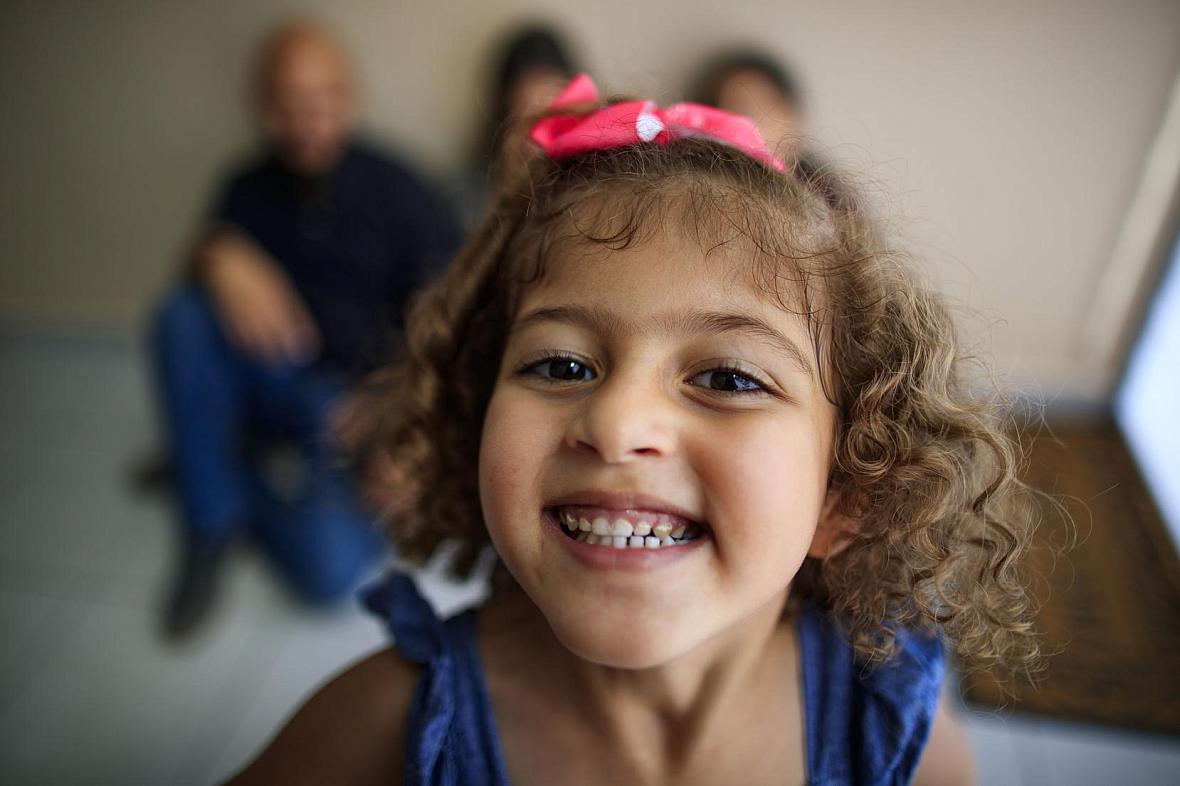
Isabella López Aponte, 5, struggles with seven congenital heart conditions that can only be cured once a heart transplant is available at an indeterminate time.
(Ramón "Tonito" Zayas)
Isabella López Aponte, 5, is an active and cheerful girl. While this interview is going on, she sings -leaving shyness behind- the famous musical theme from the movie Encanto “We Don’t Talk About Bruno.” Then she asks for a turn to talk about how much she loves her older sister, Anelisse.
With the energy she shows by playing in her living room, no one would suspect that the girl struggles with seven congenital heart conditions that can only be cured by a heart transplant.
When Hurricane Maria hit Puerto Rico in September 2017, Isabella’s family was already dealing with the economic challenges brought by the treatment of her heart condition.
The storm then forced a move to the continental United States, which immediately made Isabella eligible for the Supplemental Security Income (SSI) payment, an assistance that Congress and the Supreme Court of the United States have blocked on the island. When the family returned to Puerto Rico in 2018, Isabella lost that help.
On June 15, the minor will undergo her fourth surgery and second open-heart procedure in an effort to continue rectifying her cardiac conditions.
“The doctors call her the miracle girl”, her mother, Aurelis Aponte Carrasquillo, said.
Isabella was born on February 8, 2017, seven months before the catastrophic hurricane. Aurelis had a normal pregnancy until, two days before the due date, a 3D ultrasound detected apparent defects in the baby’s heart. Medical forecasts predicted a stillbirth, but fortunately that did not happen.
When Hurricane Maria hit Puerto Rico in September 2017, Isabella’s family was already dealing with the economic challenges brought by the unexpected diagnosis of a chronic condition with no specific expiration date. (Ramón "Tonito" Zayas)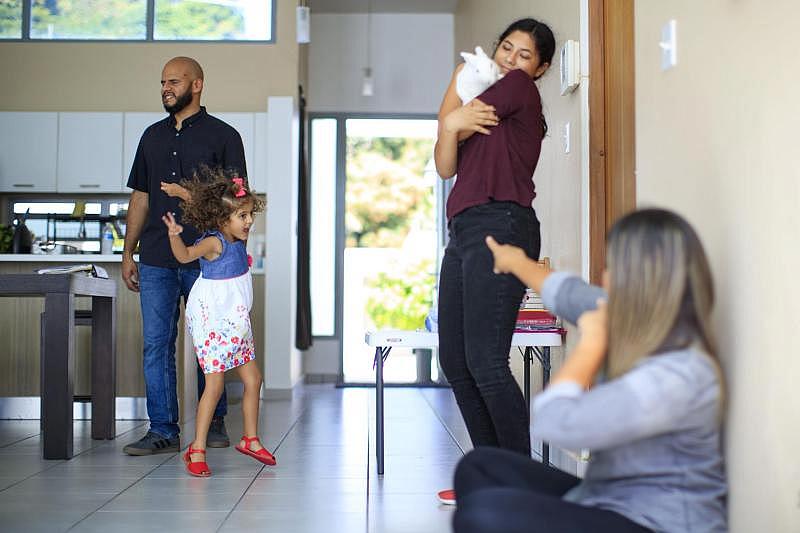
At just 21 days old, Isabella received her first open-heart surgery. Aside from the emotional impact, there’s also the economic impact, with which the family has had to deal with as part of the child’s medical care.
“Even something as simple as saying, how do we minimize parking fees? Every day it was setting us back $80,” Aurelis recalled about some of the expenses they faced when Isabella was born. At three months old, the girl was finally discharged from the hospital.
Initially, Aurelis took sick leave from her job, but she decided not to return to work to take care of her little girl full-time.
In September 2017, Hurricane María dealt them another blow when her husband Jonathan López Morales, who worked as a tourist transporter, lost his source of income after that industry was paralyzed by the state of emergency that the island was experiencing.
After the hurricane, the family struggled with their finances. They lacked basic services, such as water and electricity, and feared the excessive heat would affect Isabella’s health. They decided to move to the state of Florida.
SSI in Florida
As soon as they arrived at the airport, the López Aponte family was surprised with a series of guidelines on federal aid that they could apply for. Among them was the Supplemental Security Income (SSI) program. In less than a month, they were retroactively awarded this aid, as well as food stamps, WIC benefits and Medicaid.
At just 21 days old, Isabella received her first open-heart surgery. (Ramón "Tonito" Zayas)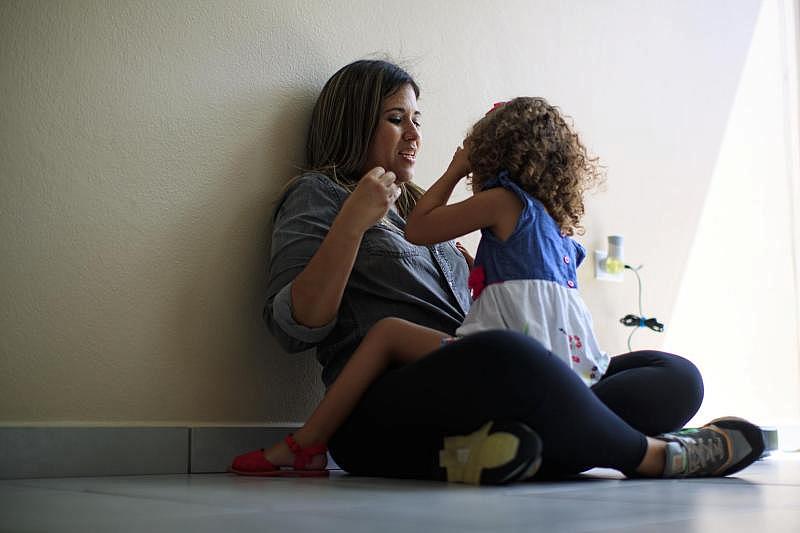
“It gave us needed breathing room. We were given help to attend our basic needs, and we were also able to start paying debts, reestablishing our finances,” said Aurelis.
Several months passed, and the family finally began to stabilize their economic and employment situation. She and her husband both found work and were preparing to rent an apartment when Aurelis received a call from a relative. Her mother had been diagnosed with Alzheimer’s disease in an advanced stage, and she needed Aurelis and Jonathan to help with her care. For that reason, eight months after moving to Florida, the family returned to Puerto Rico.
“My husband arrived in Puerto Rico first and, at the end of the school year, when the girls (Isabella and Anelisse) finished classes, we joined him back in the island,” she recalled.
Help runs out back in Puerto Rico
Back home in Puerto Rico, the Social Security Administration (SSA), which administers the SSI, withdrew Isabella’s access to that program because it is not available on the island.
An estimate reviewed by experts for El Nuevo Día newspaper, based on data from the 2020 Puerto Rico Community Survey carried out by the Census Bureau, indicates that there are around 32,232 children on the island under the age of 18 with disabilities and/or below the poverty level, which would make them eligible for SSI.
There are three eligibility categories: adults 65 years and older, blind or disabled of any age, or of low income and resources. When adding these categories, the pool of possible eligible candidates for the program grows to 455,203 Puerto Rico residents.
However, the Supreme Court of the United States decided in a federal government case against José Luis Vaello Madero -a Puerto Rican man who lost SSI access when he moved from New York to Puerto Rico- that Congress is not obliged to extend that program to residents of Puerto Rico and that such exclusion does not violate the due process clause under the Fifth Amendment.
A class-action lawsuit that stalled before the Federal Court for the District of Puerto Rico attempts to challenge that exclusion. The lawsuit focuses its arguments on the alleged violation of the citizenship clause in the Fourteenth Amendment of the U.S. Constitution.
There are around 32,232 children on the island under the age of 18 with disabilities and/or below the poverty level, which would make them eligible for SSI. (Ramón "Tonito" Zayas)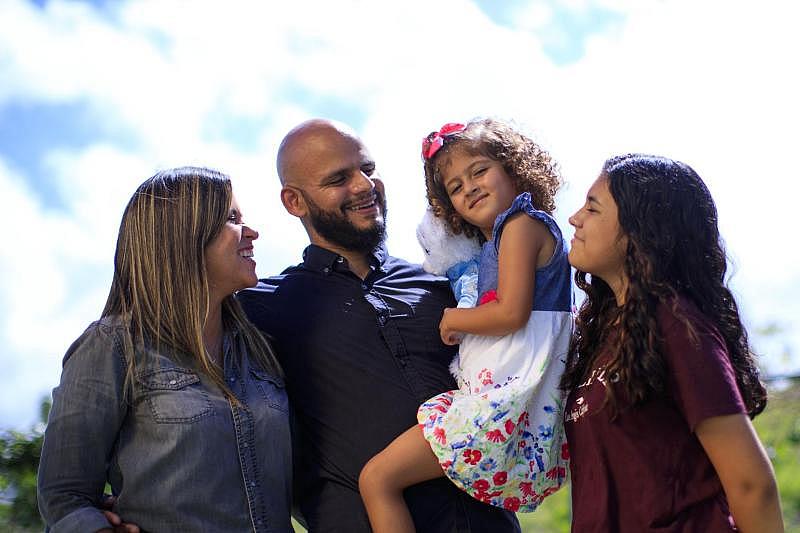
Aurelis’ family felt the impact of loosing SSI when they returned to Puerto Rico.
Isabella had been receiving $733 per month from SSI, an assistance that had been important to achieve financial stability and a better quality of life for a child waiting for a heart transplant.
“Isabella is not the only one, there are many people who need (the SSI),” said Aurelis. “We were aware that by coming here we would lose that benefit, but I keep seeing families in need,” she added.
The SSI program provides unrestricted economic assistance. In other words, the aid can be used to cover basic needs, medical expenses, medication and even ordinary expenses that result in the well-being and better quality of life of the eligible beneficiary.
Taking into account the help that this federal assistance represented, the family decided to move Isabella’s maternal grandmother, 65, to North Carolina with one of her adult children. The move took place last Saturday. The decision to relocate her was not an easy one, Aurelis said, but her Alzheimer’s condition had worsened, which increased her need for care and treatment.
“The SSI was an incredible help for us, we were able to get a running start,” recalled Jonathan.
“We always ask ourselves, why isn’t it in Puerto Rico? Why isn’t there any orientation (about the program) in Puerto Rico, for that matter?... There are people who really need it,” said Jonathan. “We witnessed many cases of people in the Medical Center who have nothing,” he lamented.
Back on the island, the Social Security Administration (SSA), which administers the SSI, withdrew Isabella’s access to that program. (Ramón "Tonito" Zayas)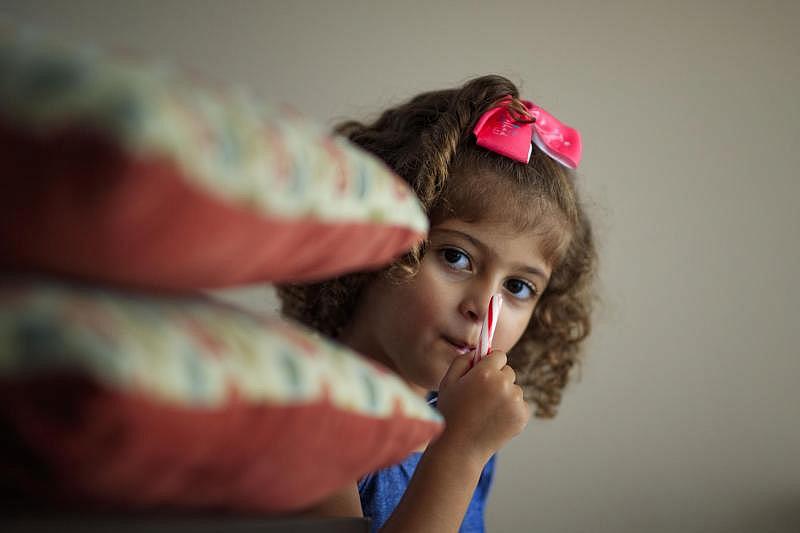
Four years after returning to Puerto Rico, the couple decided to start a business that they hope to open soon, which would allow Aurelis to take closer care of her daughters. Meanwhile, Jonathan got his job back as a tour operator.
Their economic challenges continue, especially every time Isabella undergoes surgery and goes through periods of greater care. Aurelis said that by sharing her experience, she not only advocates for the extension of SSI to Puerto Rico for her daughter, but for the hundreds of thousands of people with disabilities and other special needs in Puerto Rico.
“We have to continue looking for strategies to continue advocating from a human rights perspective... ‘Equal Justice Under Law’, is what is established (in the Constitution of the United States),” said Aurelis, who plans to create a foundation to help families facing unexpected hardships.
“President (Joe) Biden himself is welcome to come to Luquillo, Puerto Rico, or to walk in our shoes,” added the mother from Puerto Rico.
Meanwhile, Isabella does not stop surprising her family with her spontaneity, contagious joy and hope for her future.
“She talks about her mark of bravery (a scar from her operation). She treasures her life,” Aurelis concluded.
[This article was originally published by El Nuevodia.]


